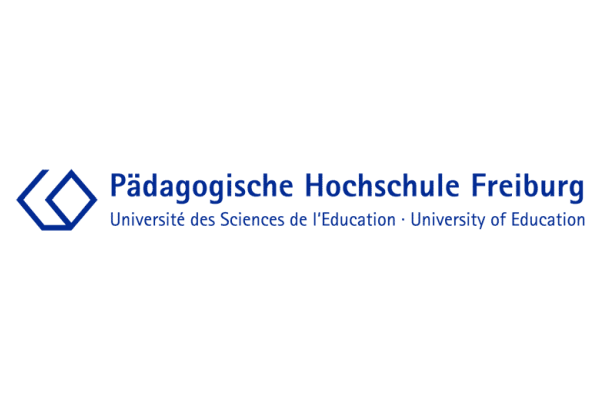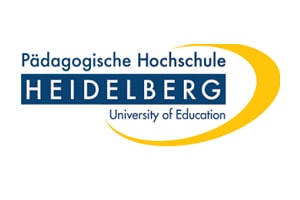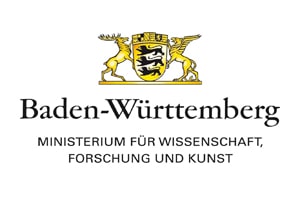
Research Training Group
Teachers’ diagnostic competences: influences, structure, and development.
Description
Among the many activities that teachers carry out on a daily basis, diagnostic activities, i.e. any form of gathering information about the state of learning or the learning process in order to prepare pedagogical decisions, are considered to be key. Knowledge, skills, motivations and beliefs of teachers which enable them to do this are summarized under the term diagnostic competence . The great importance of this facet of professional competence is contrasted by an unsatisfactory state of research, which is characterized by a number of research traditions that have so far been poorly interconnected.
The research training group was dedicated to elucidating the influences and structures of diagnostic competence as well as to the design of professional development programs. A systematic approach to the manifold aspects of this bundle of constructs was provided by the distinction between diagnostic dispositions (knowledge, motivation), processes of diagnostic thinking (perception, interpretation, action) and the performance of diagnostic action.
Twelve subprojects combined recent research approaches and applied competence modelling methods, the recording of judgement accuracy and the experimentally controlled variation of relevant influencing variables on the part of the teacher. In particular, the collaboration between psychology, educational sciences and research on domain-specific teaching and learning has expanded the evidence base and improved and systematized the theoretical understanding of diagnostic competence.
The Baden-Württemberg Ministry of Science, Research and the Arts funded the “DIAKOM” research training group at the Universities of Education Freiburg and Heidelberg for a period of three years. Within this program, a junior professorship and twelve secondments of teachers from Baden-Württemberg who teach at elementary, lower secondary, intermediate, secondary modern or community schools or at special education and counselling centres (SBBZ) began in August 2017 with the aim of gaining a doctorate or habilitation.
Subprojects
A1: Effects of an intervention on the transfer of knowledge of content and students in elementary science education
Teachers’ diagnostic competence includes, among other things, the ability to recognize and assess students’ pre-concepts. This competence facet is described as subject- or content-specific(knowledge of content and students), although it is not clear what the relationship is between overarching aspects (general knowledge and principles) and content-specific aspects of this competence. The question of a meaningful transfer of this competence to other contexts within a domain or to contexts of other domains, e.g. by activating general subskills or analogy building, is also open. The aim of this project is therefore to examine the extent to which teacher education students in physical education show higher diagnostic competencies in another content area of this subject or even in content areas of another subject by promoting their diagnostic competencies in one content area of physical education (by imparting content knowledge and pedagogical content knowledge). We expect the ability to transfer diagnostic skills to a moderate degree. These boundaries are to be specified with regard to different domains (economics, physics) and contents (purchase as an act of exchange, function of banks; optics, leverage). The results are of great importance for the structure of training and further education in elementary science education.
A2: Teachers’ analytical skills in assessing initial writing attempts in English – judgement processes and their cognitive and attitudinal basis.
This subproject is devoted to the diagnostic thinking of English teachers by investigating their judgment processes when analyzing second graders’ spelling skills in English as a first foreign language. The question to be addressed is to what extent a bi-literate diagnostic competence (German – English) contributes to an accurate assessment of the L2 written language developmental status. Judgment processes are examined using corrections of written student texts. The accuracy of the teachers’ judgements can be derived from the extent to which the judgements were made not only with a view to target language correctness, but whether a transfer from the school language German was taken into account. Furthermore, newly designed interviews and questionnaires will be used to assess knowledge about the written English language acquisition process and individual attitudes towards English language teaching. It is expected that few teachers will note interference from German as positive in the English misspellings of second graders, and that consequently no distinction can be made between children whose errors are of arbitrary origin and those whose spellings are already based on advanced insights into the specifics of an alphabetic script.
A3: Teachers’ diagnostic competence in relation to cognitive abilities and social participation in the context of inclusion
The project investigates the diagnostic thinking and actions of teachers in inclusive learning groups. The focus is on those situations that require informal diagnostic judgments about students’ cognitive abilities and social participation. While so far mostly the diagnostic competencies of teachers with regard to cognitive characteristics of learners have been investigated, there are hardly any research findings on the accuracy of teachers’ assessment of learners’ social participation. In order to make teachers aware of the social exclusion processes of students with special educational needs (SPF) in inclusive learning groups, which have been empirically shown in many cases so far, and to be able to counteract them in a targeted manner, the aim of the project is to analyze the connections between and differences in the accuracy of teachers’ judgments with regard to, on the one hand, cognitive abilities and, on the other hand, the social participation of students in inclusive learning groups, taking into account individual characteristics of the teachers and contextual conditions. A mixed-methods design will provide insights into specific strengths and weaknesses of teachers in the above areas, from which criteria for targeted interventions can be derived.
B1: Task-related diagnostic competence of biology teachers – judgement processes on cognitive operations while completing learning tasks
The ability to assess tasks according to content-related characteristics (e.g. according to the types of knowledge promoted or the intended processing procedures) can be regarded as a facet of teachers’ diagnostic competence. Models for such an understanding of diagnostic competence describe content knowledge and pedagogical content knowledge, but also other teacher characteristics such as professional experience as influencing factors. Overall, however, little is known about conditions of diagnostic accuracy. The aim of this project is to investigate the judgements of elementary and secondary school teachers on tasks for science lessons in grades 4 and 5 and the judgement processes that occur in relation to individual teacher characteristics. To analyze the judgment processes, data is collected with the method of thinking aloud. Verbal utterances are examined in relation to teacher characteristics. It is expected that the influence of content knowledge and pedagogical content knowledge on judgment processes and diagnostic accuracy can be explained.
B2: Difficulty assessment of mathematics tasks – judgement processes and the role of individual and task-related characteristics
Teachers’ diagnostic competence includes the ability to correctly assess task difficulty. Such assessments depend on individual characteristics such as professional experience and pedagogical content knowledge (about typical difficulties), as well as on task-related characteristics such as the form of representation and the salience of relevant task features. Little is known about the interaction of these features during the judgment process. This project aims to investigate the role of individual and task characteristics on the quality and the process of mathematics task judgments of individuals with different levels of knowledge and experience. In order to analyze the judgment processes, eye movements are tracked in addition to verbal utterances. It is expected that higher pedagogical content knowledge will improve the assessments, especially when the salience of the necessary solution steps is low. This should also be reflected in differences in diagnostic processes. The results of this study could help design interventions to promote diagnostic competencies in initial teacher education and professional development.
B3: Curriculum materials on mathematical-scientific models – diagnosis of subject- and addressee-related characteristics
Mathematical-scientific models from chemistry and mathematics require different representations due to the non-descriptive nature of the modelled facts, which can be associated with considerable difficulties in understanding. Diagnostic competences of teachers include the ability to assess such difficulties also with regard to curriculum materials, e.g. with regard to (a) the technical adequacy and (b) how well they adress student characteristics, especially with regard to known preconceptions. In this project, the influence of content knowledge and pedagogical content knowledge on the perception and judgment processes of prospective teachers in the area of mathematical-scientific models will be investigated. For this purpose, different ways of representing abstract models in curricular materials are varied experimentally. The dependent variables will be eye movements during the perception of the curriculum materials and reasons for the decision to use them.
C1: Structures and practices of academic language in elementary science education: Subject-related competences of teachers as a basis for diagnostic thinking and acting
Subject-specific diagnostic competence of teachers in relation to academic language structures and practices is highly relevant for the achievement of educational participation and equal opportunities for students with deficient academic language competences). Numerous linguistic studies are now available on the academic language requirements in school classrooms. The professional diagnostic competencies of teachers in this area have hardly been empirically investigated so far. The study therefore surveys the professional knowledge of teachers with regard to academic language requirements in the elementary science education and analyzes their diagnostic competence with regard to learners’ linguistic difficulties. The results contribute to a better description of the academic language-related diagnostic competencies of teachers and form the basis for the development of concepts for pre-and in-service teacher training in this area.
C2: Diagnostic judgements of oral language productions in French – influence of individual, linguistic and student characteristics
Diagnostic competence of foreign language teachers includes, among other things, the ability to assess oral language productions. So far, little is known about teacher’s judgment processes that take place in this context. This project aims to investigate the role of linguistic aspects (e.g. grammatical correctness and pragmatics), student-specific (e.g. social background or language biography) and individual teacher characteristics (e.g. prior knowledge, attitudes) in the assessment of oral language performance by experienced and prospective teachers. In an experimental design, videotaped classroom examples are used to investigate the factors influencing the assessment of oral language productions. For the analysis of the judgments, agreements with expert judgments as well as decision-making processes leading to the judgment are recorded. The resulting knowledge about the judgment processes of oral language productions can be used to strengthen oral foreign language competencies in the classroom.
C3: The influence of stress on teachers’ diagnostic judgment in reading instruction.
The teacher’s content knowledge and pedagogical content knowledge related to task and text features, inferential reading processes and reading strategies play a crucial role in assessing and promoting their students’ reading competence. However, the process of diagnosing happens in real classroom situations under the influence of distorting influences, such as stress. To date, such bias factors have either not been considered in studies or have been eliminated where possible. The inclusion of confounding factors is crucial to assess the validity of previous research findings and to quantify the extent of the influence of such biasing factors. To this end, the present subproject investigates the effect of stress on judgment accuracy on task/text difficulty and inferential processes in reading, as well as on the adequacy of reading strategies. In addition to diagnostic performance, verbal protocols (“thinking aloud”) and eye movement data are used to analyze judgment processes. It is expected that on the basis of the data thus obtained, conclusions can be drawn both for appropriate research designs and about the processes involved in making judgments.
D1: Predictive accuracy based on student solutions with typical mathematical misconceptions – experience-based versus theory-based judgment processes.
The project investigates the influence of two facets of subject-related diagnostic competence (experiential knowledge and theoretical knowledge) on diagnostic thinking in the assessment of student solutions. Prior research indicates large differences in assessment accuracy across teachers, but largely leaves open the question of causes at the level of teachers’ characteristics or their judgment processes. Practice-based knowledge and theoretical pedagogical content knowledge student solutions and task features play a role in the assessment of student solutions, the latter especially in content areas with epistemological hurdles (such as fractions), where misconceptions often represent learning hurdles that go unnoticed. The aim of the project is to investigate to what extent practice-based vs. theoretical pedagogical content knowledge differentially influence the assessment of student solutions and whether the two facets of diagnostic competence can be stimulated independently of each other. To this end, a think-aloud study will compare the diagnostic thinking of teachers as “practice experts” and mathematics education researchers as “theory experts” in assessing student solutions. In an intervention, it will also be examined whether different assessment processes can be specifically stimulated in teacher education students as novices by imparting practice- or theory-based pedagogical content knowledge. It is expected that, especially in tasks that address epistemological hurdles and misconceptions, practice-based knowledge alone is not sufficient for accurate assessment of task (solutions). In these tasks, theory-based pedagogical content knowledge should be more important than practice-based knowledge.
D2: Student preconceptions of ecological concepts – promoting diagnostic thinking in student teachers with the help of video-based teaching sequences
Intuitive student perceptions can hinder the acquisition of technically sound concepts, so it is important for teachers to perceive and interpret them in the course of teaching and to make appropriate decisions about how to deal with them. In addition to the general complexity of teaching, the transience of the diagnostic situation poses a particular challenge for teachers when diagnosing in the classroom. This subproject will therefore investigate whether video sequences in teacher training can be used to promote cognitive skills for classroom-based diagnosis of student conceptions in biology classes. The first experiment compares the effects of two alternative training conditions (“transient” videos of expressed student ideas vs. corresponding, “intransient” transcripts). Based on an analysis of the specific constraints of the two training conditions, a second experiment is conducted to investigate an instructional optimization of the “better” training.
D3: Pedagogical content knowledge for diagnosing student thinking and student errors in mathematical modeling. Development and validation of a paper-pencil test
Pedagogical content knowledge about student thinking or student errors as changeable, cognitive dispositions in the sense of Blömeke et al. (2015) is an essential aspect of diagnostic competence. Numerous empirical studies draw on corresponding conceptualizations of pedagogical content knowledge and show its significance for the quality of teaching. In order to measure pedagogical content knowledge, written knowledge tests (paper-pencil tests) are primarily used. However, the validity of this type of assessment has not been clarified either theoretically or empirically, and an interpretation of models with a view to adaptive instructional design must therefore be critically questioned. In the project, therefore, a theoretical and empirical validity test of the measurement of pedagogical content knowledge about student thinking and student errors is to be carried out by means of such a knowledge test. Content validity is first tested through cognitive interviews with mathematics education students. Structural and external validity are tested by using the (from a theoretical point of view) unidimensional knowledge test with mathematics education students by means of probabilistic measurement models. To this end, the test of knowledge of student thinking and student errors is administered along with other tests of pedagogical content knowledge and content knowledge. It is expected that knowledge about student thinking and student errors can be validly captured by the knowledge test as a separate knowledge facet.




